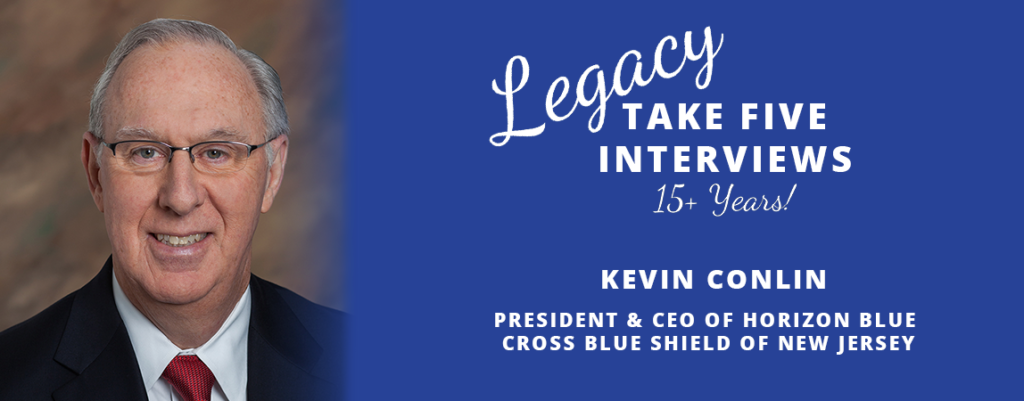Kevin Conlin, President & Chief Executive Officer of Horizon Blue Cross Blue Shield of New Jersey.
Horizon Blue Cross Blue Shield of New Jersey has been a member of the Quality Institute for almost 20 years and is one of our earliest members. Can you tell us why the organization values its membership?
Improving the quality of health care in New Jersey has been central to our mission as long as we’ve been in existence. So, joining the Quality Institute was an easy call. The Quality Institute serves a critical role in many ways; most notably, in convening representatives from various areas in health care — people from different disciplines and with different perspectives. I think the Quality Institute has been instrumental in fostering the critical dialogue around the shift from volume to value-based care. The shift, in my view, has been essential to transforming the health care system so it’s more collaborative, more aligned, and really more focused around the needs of the patient rather than the needs of the delivery system. And one last thought, achieving the Triple Aim must be a team sport — it’s going to take all of us coming together to discuss openly and honestly the challenges we face. The Quality Institute has played a tremendous leadership role in that regard.
Health care has become more transparent in recent years with more focus than ever on measuring outcomes. How have these changes benefited consumers?
A value-based health system is all about delivering better care, not just more care. The transformation from fee-for-service to fee-for-value requires us to look objectively at the outcomes we all want and then build payment models that encourage those outcomes. Step one requires everybody to come to agreement on the outcomes we want to achieve — and we can only do that if we have some objective and transparent measures as our building blocks. A value-based system is going to work only if we build these new models collaboratively with those who are actually providing the care. And that’s a discussion that we’re having with physicians, health systems, and other providers literally every single day. … Our consumers are looking for the best care, at the best price, and we believe that that’s what our focus on measuring outcomes yields. Is there more work to be done? Absolutely. But we are making progress.
As you look out over the next decade, what innovations do you believe will make the greatest improvements in patient outcomes?
Innovations that unleash the power of all the data we have about individuals and populations and make the data actionable are going to have a very significant impact. Horizon is already providing intuitive tools that help physicians stratify and identify patient populations across a number of segments. They can see, for example, all of their patients with a particular condition — identify those who are managing their health well, and identify those who aren’t doing so well and then presumably take action. We’ll soon have advanced analytics to identify the treatments that work most effectively for a particular patient with a specific condition.
What innovations do you see creating a more equitable health care system?
Just the recognition that your zip code matters as much, if not more, than your genetic code in determining your overall health is a huge step toward equity. At Horizon, we’ve committed $25 million to invest further in this. We’ve achieved some very encouraging results by partnering with RWJBarnabas Health to work together in four zip codes in Newark around Newark Beth Israel Medical Center. Between the two organizations, we invested in community health workers and personal health assistants and leveraged some of our advanced analytics and data to take a new approach to outreach in these communities. The fact that people had an insurance card in their pocket didn’t mean that they were able to actually get that care. We now have eight other partners who have signed on and together we’re going to employ 50 community health workers to support 25,000 Horizon members all across New Jersey.
What future innovations or changes will make a difference when it comes to affordability?
It will be about making sure the right incentives are in place for providers to improve affordability because, at the end of the day, there is a limit to how much insurers, on their own, can actually lower the total cost of care. We really are trying to work collaboratively with providers to lower the total cost of care — and not do it at their expense or at the expense of good care. This much-needed transformation will not happen if providers are penalized for providing efficient health care. And finally, our members have a role to play with regard to lifestyle choices. The integration of “wearables” and other consumer-oriented technologies is expanding very quickly, making it easier for people to be aware of how their daily choices —taking the stairs instead of the elevator or the foods they consume — directly impact their health in the long term.

